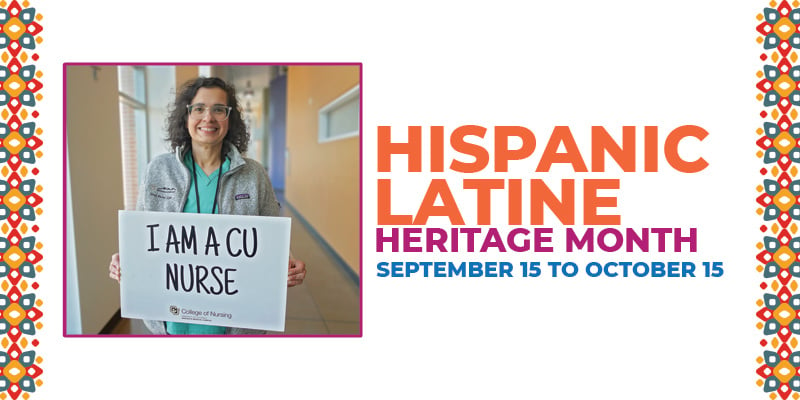Margarita Flores vividly remembers when she wanted to become a nurse and midwife. She was about five years old, and her mom was pregnant with her sister.
“My mom would tell me and my siblings when the baby was moving. And I felt my hand and her hand (my sister’s) touching each other,” she says. “I can remember that day like yesterday, it’s a core memory. Then my sister was born, and I would spend hours staring at her.”
Flores would care for her sister growing up (she was born with cerebral palsy), and being a caretaker came naturally to her.
“I originally went to school for social work, but then I heard about midwifery, and I thought I could do that. So I became a nurse and met some midwives, who encouraged me to pursue that profession,” she says.
Flores is a student in the University of Colorado College of Nursing at Anschutz Medical Campus’s Doctor of Nursing Practice (DNP) program. She has 25 years of midwifery experience, working in Chicago and midwifery practices in Denver, including CU Nursing’s Center for Midwifery, and she is now at the School of Medicine. She works primarily in interprofessional education, focusing on educating first-year residents about the normal physiology of pregnancy and birth.
“I wanted to earn my DNP because I wanted to grow in my career,” she says. “I wanted to start teaching because I think I’m at a place where I could provide guidance and education to young midwives.”
"We need more midwives of color,” she says. “The more diverse the profession is, the more we’re able to reach and care for our patients. Midwives usually work with marginalized groups, and the Latine population is one of the highest patient groups we care for. As our population changes, we need to change with it.”
Part of providing guidance is being a role model. Flores is proud of her Chicana heritage and has mentored five students of color.
“You see Latina women in healthcare, but unfortunately, there’s not enough of us,” she says. “I do see myself as a mentor, and I take that role very seriously. I’m someone who’s been doing this for a long time, so not only do I want to be a mentor for Latina nurses, but for all nurses and midwives.”
A Diverse Workforce
Flores has seen the healthcare industry struggle with taking the steps to implement diversity, equity, and inclusion.
“We understand diversity, equity, and inclusion, but then what? Where do we go from here? We say we have to be inclusive, but how do you know how to be inclusive?”
She says it’s important to offer more opportunities for people of color to get into nursing and other healthcare roles. She says a diverse workforce gives Latina women the ability to advocate for themselves when receiving care. Part of that might be talking to a Spanish-speaking nurse, allowing them to feel more comfortable expressing their needs.
“We not only need to provide them care, but we also need to hear about the experience they want,” she says. “Birth is such an important part of a woman's life, and every woman deserves the best experience they can get.”

